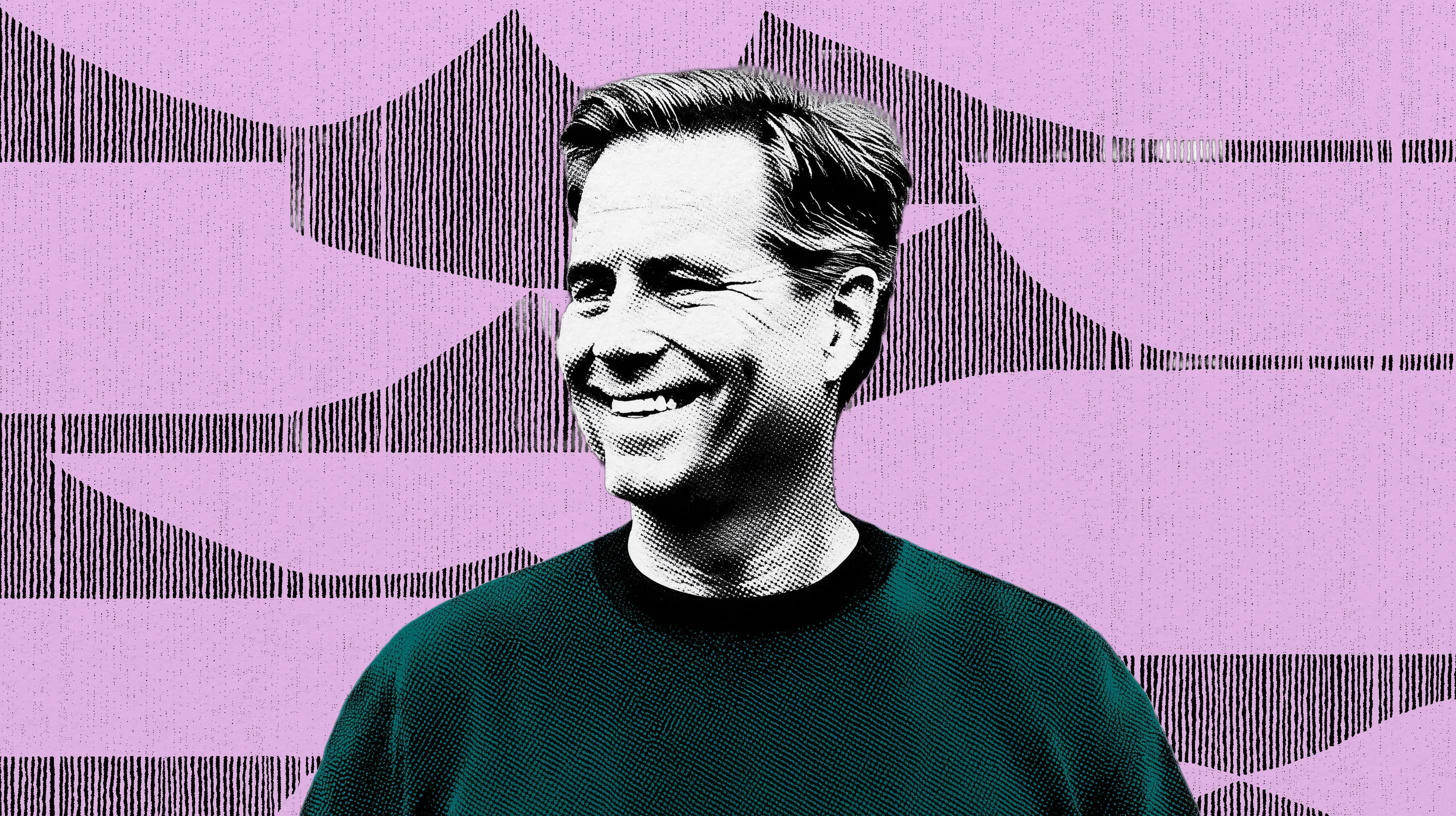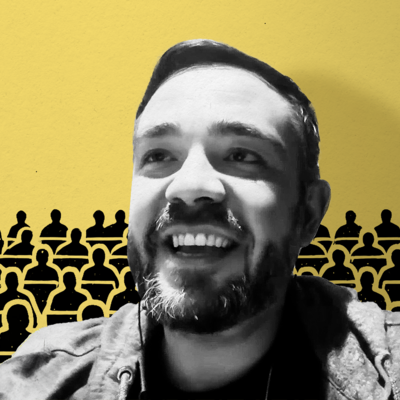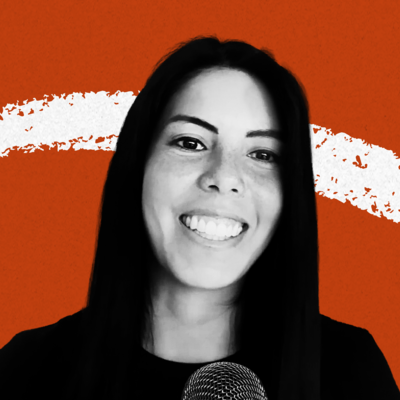
TL;DR: Today we’re releasing a new episode of our podcast AI & I. Dan Shipper goes in depth with Joe Hudson, an executive coach to the brightest minds at OpenAI. Watch on X or YouTube, or listen on Spotify or Apple Podcasts. Here’s a link to the episode transcript.
Was this newsletter forwarded to you? Sign up to get it in your inbox.
Joe Hudson is a coach who works with the executives building AGI at OpenAI.
From inside OpenAI, he witnesses the full spectrum of human emotion that comes with bringing something new into the world—the exhilaration, the terror, the weight of it all. He feels these emotions, too: He believes AI will eventually replace what he does as a coach.
But instead of fixating on that fear, Hudson is asking a deeper question: Who is he becoming in the meantime? He believes that moments like this—when we can feel the ground quiver—can be powerful catalysts for transformation, but only if we’re willing to face the uncertainty they bring.
In this episode of AI & I, Dan Shipper sits down with Hudson to talk about how he’s answering that question. They get into what happens when the thing you’ve built your life around might disappear, how to find who you are beneath your professional identity, and why Hudson believes intention is the key to growing with AI.
You can check out their full conversation here:
If you want a quick summary, here are some of the themes they touch on:
AI can replace your skills, not your essence
Hudson is living through this moment of transformation alongside us. When Dan asks him how it affects him personally, he describes feeling “massive grief” about AI’s potential to replace human coaches.
Hudson doesn’t try to hide his grief; in fact, he sees it as essential for growth. He describes the “identity collapse” that many people are experiencing as AI commoditizes our skills, suggesting that this unraveling can actually lead to deep freedom. Without our professional labels to cling to, we’re invited to discover who we are underneath them.
When Dan asks who he is beyond being a coach, Hudson says the answer isn’t just intellectual. After decades of wrestling with the question, he’s found that his sense of self points to something fundamental that has “always been there,” and “can’t be taken or given.”
This essence, he explains, is different from our shifting thoughts, aging bodies, or fleeting emotions. Hudson knows this might frustrate people hoping for a more tangible answer, but he offers a gentle provocation instead: Stay with the uncertainty, resist the urge to reach for familiar answers, and see where it leads you.
How to bring intention to the way you use AI
Hudson acknowledges that AI, like any technology, holds the potential to both help and harm. He draws an analogy to a hammer that can be used to build a house—or to hurt someone. What matters most, he says, is “bring[ing] consciousness” to the tool. That means recognizing your agency in using it and pondering long and hard over the question. “I think that's the thing most people don’t do,” he says. “Most people don’t look at the television and go: ‘How am I going to use this to make my life better?’ They just go to the addictive behavior.”
According to Hudson, building this kind of awareness is rooted in what he calls our “three brains”: the prefrontal cortex, responsible for thought; the “heart,” where we process emotion; and the “gut,” home to our instinctive nervous system responses. True transformation requires addressing all three systems. “We've all been in a place where, like, ‘I know I should exercise, but I'm not exercising’... that shows that, like, you get it [in your brain], but you haven’t gotten it in the emotional system, you haven’t gotten it in the nervous system,” Hudson explains.
Don’t carry what isn’t yours
When Dan brings up the pressure weighing on OpenAI’s leaders—to build something extraordinary while facing fears that they might end the world—he asks Hudson if he feels that same burden. Hudson admits it creeps in at times, but says it runs counter to his philosophy as a coach.
For him, taking responsibility for someone else’s path crosses into what he calls “hubris or narcissism.” It strips the other person of agency, reducing them to a victim or puppet. Instead, he sees his role as simply opening doors, and then following their lead through whichever ones they choose. Because in the end, only they can decide where they’re meant to go.
Why you should stop taking things so personally
Operating with this kind of detachment, Hudson has learned not to take things personally. It sounds simple, but it runs deep. We let our thoughts and opinions define us—but out of the 50,000 thoughts we have each day, we don’t consciously choose most of them. And we often can’t make them stop. For Hudson, life becomes more joyful when we let go a little, and stop identifying so tightly with what we think.
This mindset shows up in how he handles criticism, too. He practices getting curious instead of getting defensive, because the latter drains his energy and closes him off from learning. He says he wants to stay open to other people’s perspectives because that’s how he grows, asks better questions, and does better work.
Here’s a link to the episode transcript.
You can check out the episode on X, Spotify, Apple Podcasts, or YouTube. Links are below:
- Watch on X
- Watch on YouTube
- Listen on Spotify (make sure to follow to help us rank!)
- Listen on Apple Podcasts
What do you use AI for? Have you found any interesting or surprising use cases? We want to hear from you—and we might even interview you.
Miss an episode? Catch up on Dan’s recent conversations with founding executive editor of Wired Kevin Kelly, star podcaster Dwarkesh Patel, LinkedIn cofounder Reid Hoffman, former a16z Podcast host Steph Smith, economist Tyler Cowen, writer and entrepreneur David Perell, founder and newsletter operator Ben Tossell, and others, and learn how they use AI to think, create, and relate.
If you’re enjoying the podcast, here are a few things I recommend:
- Subscribe to Every
- Follow Dan on X
- Subscribe to Every’s YouTube channel
Rhea Purohit is a contributing writer for Every focused on research-driven storytelling in tech. You can follow her on X at @RheaPurohit1 and on LinkedIn, and Every on X at @every and on LinkedIn.
We build AI tools for readers like you. Automate repeat writing with Spiral. Organize files automatically with Sparkle. Deliver yourself from email with Cora.
We also do AI training, adoption, and innovation for companies. Work with us to bring AI into your organization.
Get paid for sharing Every with your friends. Join our referral program.
The Only Subscription
You Need to
Stay at the
Edge of AI
The essential toolkit for those shaping the future
"This might be the best value you
can get from an AI subscription."
- Jay S.
Join 100,000+ leaders, builders, and innovators

Email address
Already have an account? Sign in
What is included in a subscription?
Daily insights from AI pioneers + early access to powerful AI tools










Comments
Don't have an account? Sign up!
Fantastic interview! I truly value how they introduce fresh ideas regarding the AI-human relationship.